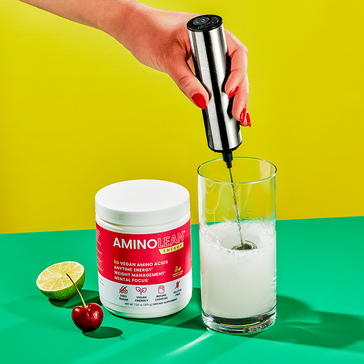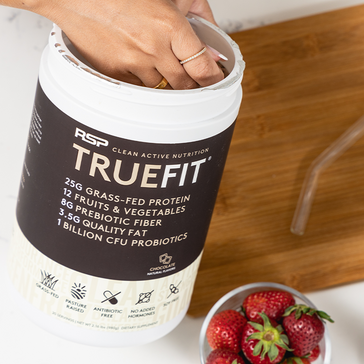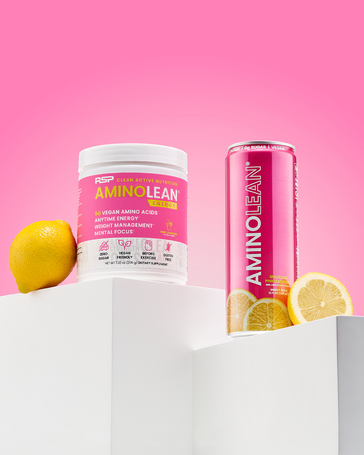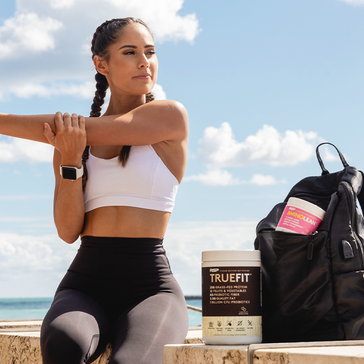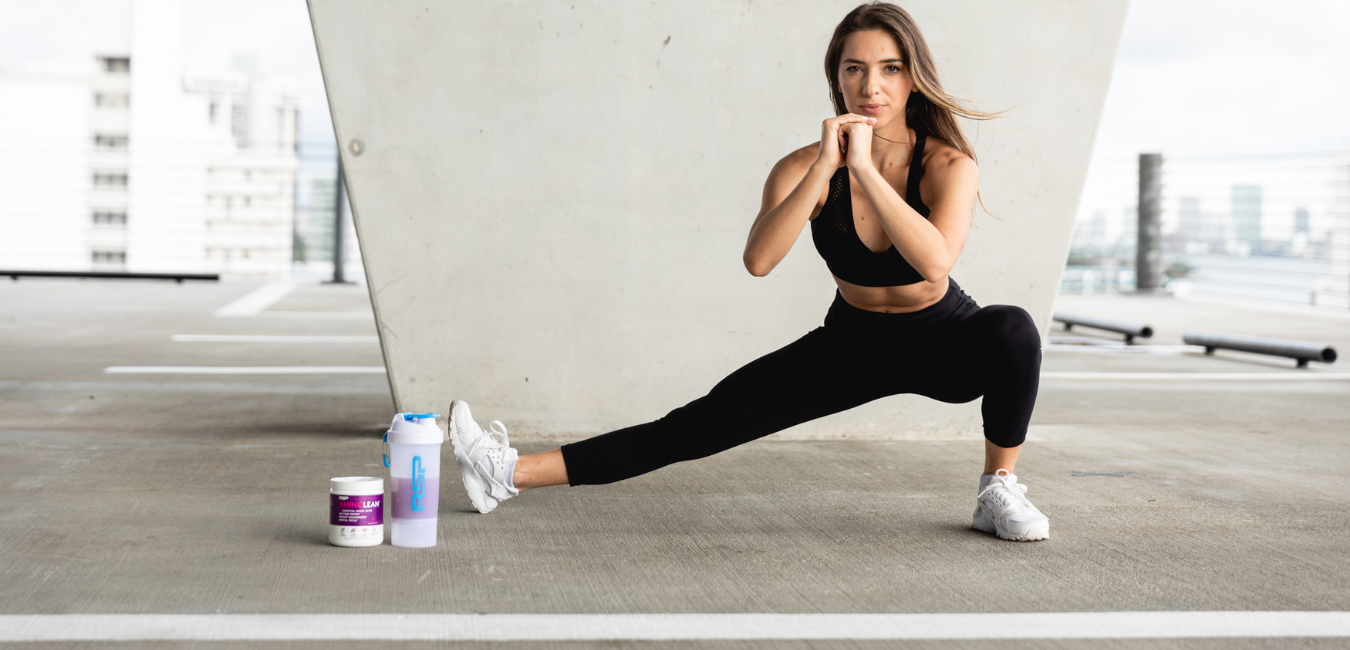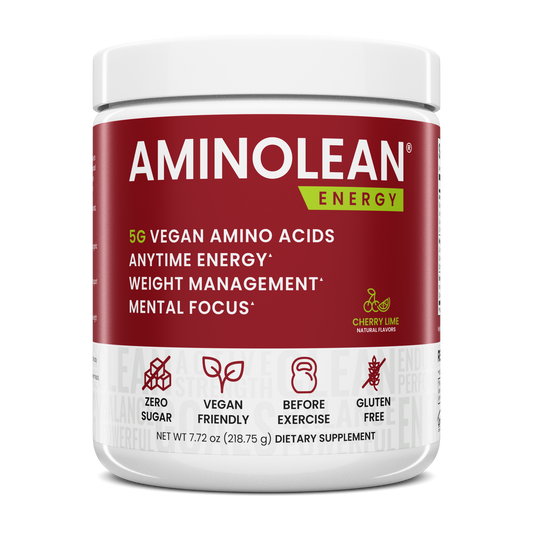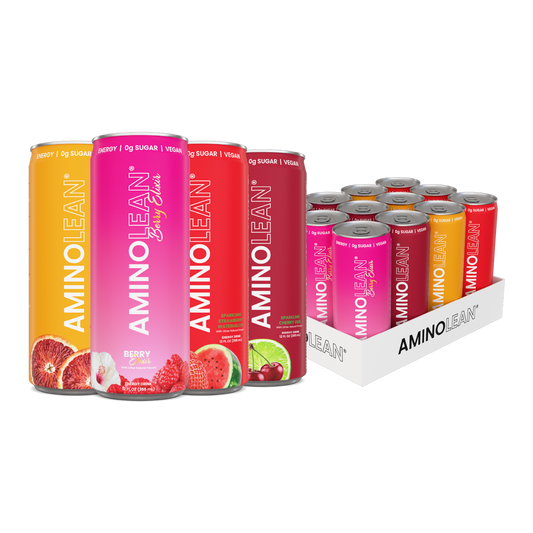Myth #1: This class will help you sculpt long, lean, muscle
Muscle grows the same on every skeleton. Read that again! Your muscles can not grow longer and choosing specific work-outs will not yield “lean” muscles vs. larger ones. Genetics, diet, and a slew of other variables here are at play. It’s in your best interest to appreciate your own unique anatomy, and spend at least a few months a year training with the goal of building muscle, regardless of your limb length.
Myth #2: Too much protein is bad for you
How much protein per day do you need? The current RDA (recommended dietary allowance) for protein intake is just .36 grams per pound of bodyweight (!!!!) and for a 135 pound female, that’s under 50g per day. That amount of protein will likely leave you woefully deficient - in order to maintain or build muscle, that same woman would actually need 100 - 135 grams of protein per day. Even if building a lot of muscle is not your ultimate goal, muscle maintenance is an important part of metabolic health. Increasing protein acts as a great fat-loss tool- it’s highly thermogenic, meaning it takes a lot of energy to digest and process it.
If you’re trying to curb overeating while surrounded by endless food sources and highly palatable options, protein is super satisfying. While you could probably eat six calorie-packed, nutrient deficient donuts, just two low-calorie, nutrient packed chicken breasts is going to give you all the nutrients you need. If you don’t have time to cook, a meal replacement is a healthy alternative to consuming high amounts of protein with little to no calories. RSP’s TrueFit meal replacement powder has 25g of grass-fed whey protein, 12 organic fruits and veggies, prebiotics and probiotics and only has 140 calories per serving. Also available in a vegan version, TrueFit plant protein powder. If you’re in a bind, you can also do a meal replacement protein shake like RSP’s TrueFit shake, which is a ready to go meal whenever you need it most.
Protein is imperative for optimal health, and it’s also an extremely important factor in all of your fitness goals.
Myth #3: You just need to exercise more and eat less
This is quite possibly the most dangerous myth for women on this list. The metabolism is like a thermostat in that it’s constantly reacting to your energetic inputs and outputs to seek balance. For instance, if you burn a lot of calories through exercise, your brain is gonna ramp up hunger in order to encourage you to eat more to compensate for that increased expenditure.
If you are trying to lose weight, some of our best studies show that 1 week on (in a caloric deficit) and 1 week off (maintenance calories) is a sustainable and effective option, rather than constantly eating in a caloric deficit and not feeling satisfied, energetic, or ready to take hold of your daily demands.
Whatever you do, don’t double down when things stop working with more HIIT classes and extreme calorie-cutting, which brings us to myth #4.
Myth #4: You need to do a ton of cardio and HIIT to lose weight
This one is so easy to debunk now that we have established some truths counter to the previous myths. At best, excessive cardio is unnecessary. But at worst, it puts you back on that path to disease as you toil away on that torture machine we call a stairmaster. The metabolism is like a thermostat, but it is also a barometer for stress, constantly trying to balance energy as you go about your daily tasks.
Long bouts of cardio are also stressful, so you need to consider what other stressors are grabbing your energy right now like relationships, work, family, disease, etc. to determine if you have the bandwidth to keep up with a hard workout schedule like that of an athlete. You’ll note that they have whole teams of experts dedicated to their resilience. For most of us who have 9-5 jobs and no dreams of running marathons, it’s much more reasonable to create smaller deficits in caloric intake on the regular, incorporate dedicated lifting sessions into our week, and of course - find every day ways to manage stress, like light walks around the neighborhood.
When you’re feeling highly motivated, you may feel inclined to go full force with an extreme diet and exercise program that you create with our own imagination, based on what other “experts” are saying and doing. However, this does not afford you the opportunity to become the expert on yourself and understand what works for you as an individual. So have that drink, keep it simple with the guidelines above, and tweak it based on your own feedback, not by other people.
Sources:
(https://www.ncbi.nlm.nih.gov/pmc/articles/PMC5045036/).
